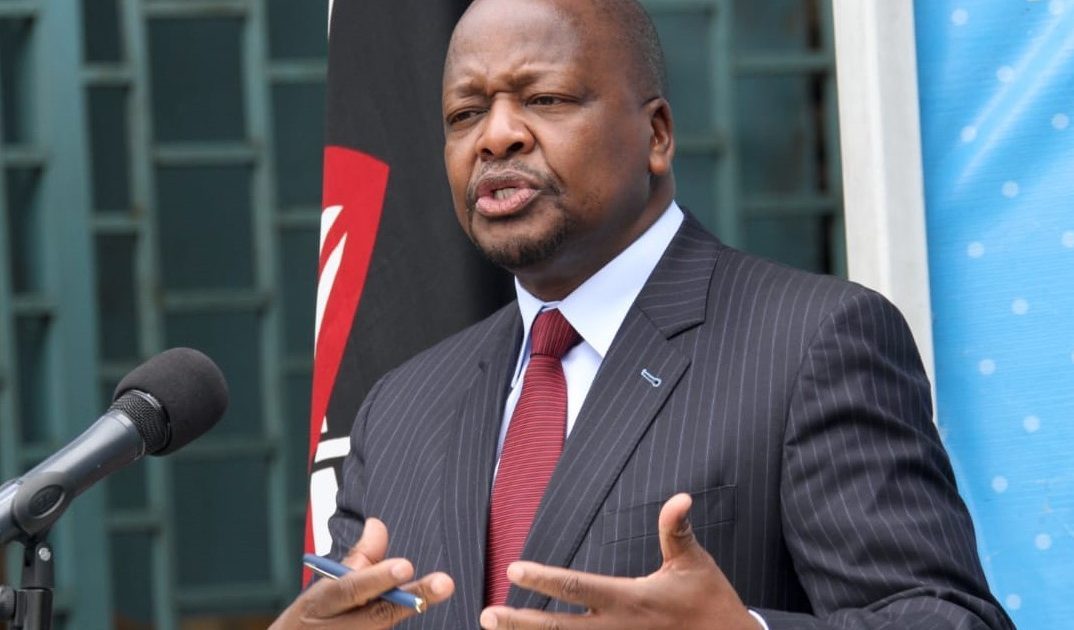The Ministry of Health will spend approximately Sh.3 billion to develop and equip Centres of Excellence for Eye, Hearing and Dental Care.
This will be done at the Moi Teaching and Referral Hospital, County Referral Hospitals of Mombasa, Nyeri, Meru and Kisii.
Health Cabinet Secretary, Mutahi Kagwe, said health is an investment and called upon County governments to consider investing in eye health.
In a speech read on his behalf by the Health Chief Administrative Secretary, Dr. Rashid Aman, at a Nairobi hotel, Thursday, during the launch of Vision Impact Project (VIP), Kagwe noted that in Kenya, out of the 7.5 million persons, who are in need of eye care services, 250,000 are blind, while another 750,000 have difficulties in seeing clearly.
“This VIP, which feeds into the National Eye Health strategy contributes further to our wider National Health Sector Plan, focusing on Health Systems Strengthening National Vision 2030 economic strategy and ultimately to the UN Sustainable Development Goals.
Kagwe said that out of the 10.4 million children enrolled in Primary schools in Kenya, about 100,000 of them have significant refractive errors requiring spectacles with only about 37,000, who are able to access spectacles to enable them engage meaningfully in schooling.
The CS further projected that an input of Sh.2.2billion through the Vision impact project, shall bring back 8.8 billion profit equivalent in the project period, if resources are used efficiently.
“It is clear in my mind that investing in eye health is cost effective and will always be required, now that our ageing population is growing,” said Kagwe.
He appealed to all Kenyans to take advantage of the availability of eye health resources in the health system, to ensure that all eye health needs are met.
“If you have difficulties in seeing the black board for students, if you are diabetic and even if you have no vision problems, you all need to have eyes examined and appropriate treatment given, and it is now available. If our doctors recommend cataract surgery for you, they now have the required equipment to provide high quality surgery,” said CS.
Kagwe noted that the government is committed to increase coverage of good sight-restoring cataract surgery by 30 per cent and to increase coverage of good vision care services for refractive errors by 40 per cent.
He also commended the Peek Technology which is a smart phone mobile application, easy to use by non-medical workers to screen school children and community members for eye diseases and even link them to the very scarce eye specialists, having been studied and validated in Trans Nzoia County and found to provide threefold increase in patient’s access to eye care.
However, Kagwe stressed that it is sad to realize that despite the available skills and understanding, a huge burden of the blind is due to Cataract, adding that provision of simple and quality spectacles will be a solution to school going children, who have challenges in seeing the blackboard.
The main causes of vision impairment include age related cataract and refractive errors including short sightedness, long sightedness, common among school going children with Cataract Surgery, being one of the most cost-effective health interventions which transforms life.
The VIP aims at improving integrated health systems for eye health, including Community and School screening for eye diseases and conditions, provision of spectacles for children, sight restoration interventions like cataract surgery for the blind and rehabilitation of those that cannot have their sight restored.
Over about 2.2 billion persons in the world have vision impairment, including the blind and about half of these have impairment that could be prevented or addressed.
By Catherine Muindi




